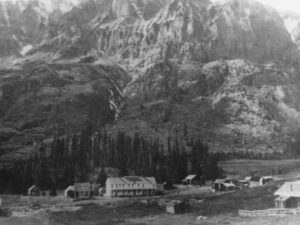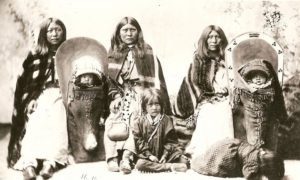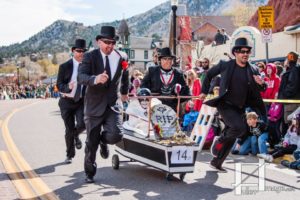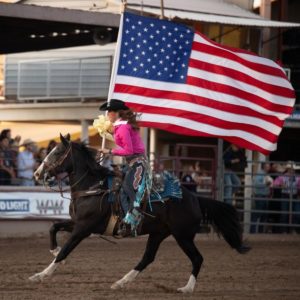A Beautiful History
The recorded history of Colorado began in 1598, when Spanish conquistadors established a small colony along the Rio Grande River. Through the late 1700s, other Spanish colonies were set up across the state. In 1803, with the Louisiana Purchase, the United States claimed a portion of the Rocky Mountains that Spanish settlers and Native people also held claim to. After several years of conflict, the US rescinded its stake; and after the 1821 treaty granting Mexico independence, modern-day Colorado became a part of that nation.

Mexico built many trading posts, roads, and other infrastructure. In 1846, the US and Mexico went to war. Mexico lost, and part of their surrendered lands was Colorado. The area became a United States territory in 1876. Not many U.S. settlers ventured into the territory until the gold rush of the late 19th century. With the discovery of precious metals came a flood of prospectors, and eventually, Colorado’s large population was granted statehood.
As a state, Colorado has been a part of the infamous American West. Mining towns across the state were run by mine owners and populated by miners and their families, tradespeople, and traveling cowboys. The Wild Western traditions began to modernize in the 20th century, and today, Colorado is a staple of the contemporary U.S. Its many nature preserves and state parks memorialize our gorgeous landscapes, and many historic monuments and museums honor our past.
Colorado’s Native Peoples
History didn’t start with the arrival of settlers, of course. Before colonists from Europe arrived to establish territories in Colorado, Native groups resided across the land. Artifacts of ancient indigenous peoples have been found across the state, with some dating all the way back to 8710 BCE. Before recorded history, the ancestral Puebloan people resided in Colorado. This classical tribe’s culture, beliefs, and practices continue to survive today among the modern Native people.

These contemporary tribes include the Arapaho, Apache, Cheyenne, Comanche, Shoshone, and Ute peoples. Modern-day Denver and its surrounding area were the home of the Arapaho peoples, which was reinforced with the 1851 Treaty of Fort Laramie. However, when the gold rush struck, white settlers forced the indigenous tribe out to claim natural resources. The Ute was also an influential tribe, residing across the entire western half of the state. They were forcibly relocated by settlers during the subsequent silver rush. During the 1950’s, the local people of Colorado were part of a federal program to place indigenous people back in their homelands rather than reservations. Denver is currently home to a great number of indigenous people and reservations across the state.
Mining and the Gold Rush in Colorado
Much of Colorado’s rich economy, as well as its acceptance into the Union as a formal state, is thanks to the long tradition of precious metals mining. The 18,000 plus mines across the state should clue you in to how big the industry was! While the first reports of gold date to the late 1700’s, it wasn’t until the 1800’s that gold mining became a prominent industry. In 1858, prospectors founded the city that is now Denver to live close to potential mines. In 1859, the first major gold rush swept through the state, and in 1861, prospectors successfully petitioned to have Colorado made a state. Since then, discoveries of silver, coal, and marble have also been discovered and mined throughout our lands. Many of these mines are now inactive, but they stand still as a monument to our abundant earth and plentiful history.
Colorado’s Modern Traditions
Colorado isn’t all history! We have plenty of modern traditions, too — all across the state. Some are inspired by historical tradition, while others are more contemporary. Either way, our state’s different traditions make it unique. Here are some of our favorite current-day Colorado traditions.
The Manitou Coffin Races
Set in Manitou Springs, the Emma Crawford Coffin Races happen every year around Halloween. This unique tradition was founded in 1995 to honor a beloved local legend. After passing from tuberculosis in 1891, Emma was buried at the summit of Red Mountain, only for her coffin to come sliding back down in 1992 after an intense rainstorm. Now, each year, teams of coffin-riders and runners race to zip through the course fastest. It’s free to attend the race, and thousands of onlookers make the trip each season.

Old Colorado Springs Territory Days
Who doesn’t love a throwback to the Wild West? Annually, on Memorial Day weekend, the city of Colorado Springs hosts the Territory Day fair at the site of historic Old Colorado City. What started as a small art festival celebrating history has ballooned into a huge celebration of the American West and its history. Over 180 vendors of snacks, arts, and crafts set up shop each year, accompanying live music, play areas, petting zoos, games, and more. This three-day event provides fun for all ages.
The Colorado State Fair
Set in Pueblo, the annual Colorado State Fair has been a state staple for 150 years! Every year in late August the State Fair sprawls across 102 acres of land, setting up hundreds of booths, including vendors, games, carnival rides, livestock shows, 4-H presentations, fine art galleries, beer and wine tastings, special competitions, live music and entertainment, and more.

Come Celebrate Tradition at the Colorado State Fair
With over a century’s worth of history, our fair is a Colorado tradition. Celebrating our state and its rich history is possible thanks to the thousands who turn out each year to join us. Because of our many art shows, presentations, craft contests, and food and drink vendors, local history is celebrated through every inch of our sprawling fair. Some of our individual events are long-running enough to be their own tradition, while other newer booths were established to highlight the Colorado traditions of days passed. If you want to celebrate Colorado and enjoy a night of family fun, come visit us at the state fair. If you have any questions about what our event can offer, contact us today.


